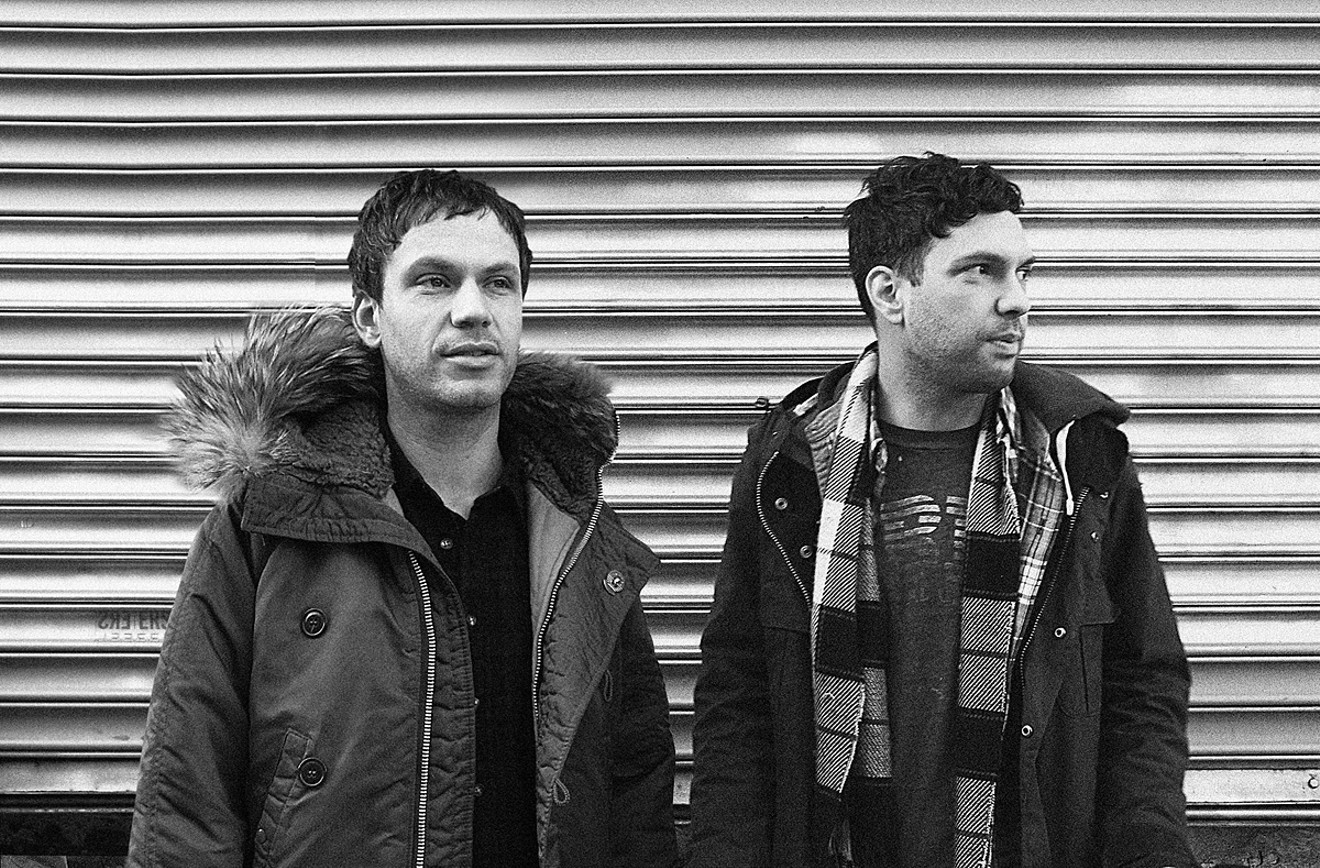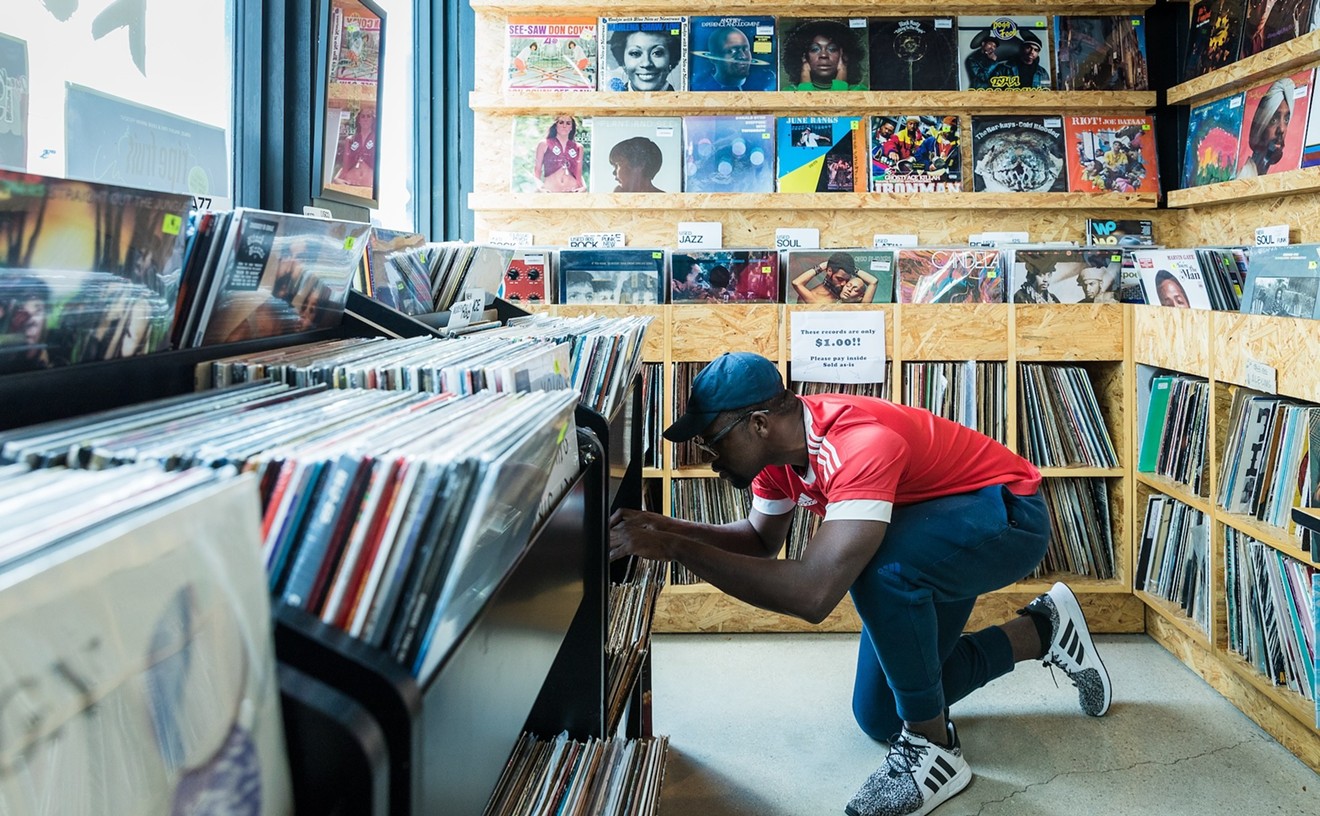In a 2016 YouTube video, Chris Stewart is a heavy-metal god performing in a small club. Playing bass in front of his own large shadow, the 41-year-old artist casually shapes the pinkie and pointer fingers on his fretboard-caressing left hand into the "rock on" horns familiarized by Dio and Sabbath.
Black Marble, Stewart's band, doesn't have the name recognition of Black Sabbath, but music critics agree his talent deserves more fame. Throughout the project's three-record life, Stewart's sound has been called "tastefully stark" and "upbeat and slightly irreligious." Slug described the band's most recent album, It's Immaterial, as "amplified vocals, pastel-colored synths, and a hint of modern-day deference... evocatively scored by Stewart's personal, nostalgic touch coupled with every happy-sad, Ian Curtis–garage dance party you've never been to."
Before the band's show at Gramps next Monday, Stewart spoke with New Times about everything from petting Utah's goats to time travel.
"I don't mind being poor, so there's no pressure on me to make things everyone likes."
tweet this
New Times: Your songs tend to have intellectual foundations; "It's Conditional," for example, is about reason. That puts it at odds with most popular music. Why is pop music often so stupid, and why is your music so much smarter than what's on the radio?
Chris Stewart: I think what's on the radio has to sell, so it's intended to be something everyone understands. I don't mind being poor, so there's no pressure on me to make things everyone likes or gets. I don't think my music is intelligent or not intelligent, but it's allowed to be personal. I allow for that, so fewer people relate to it, but the ones that do, relate to it more.
There's a Dickinson-like quality to your lyrics, almost like poetry. Do you study poetry to make your songs this way?
No, I've never studied poetry. I won a poetry competition in fifth grade, though: first-place poem about the Virgin Mary statewide. The pride of Virginia I was.
America is a theme that pops up in several of your songs — songs that are often more upbeat than your typical politically inspired tune. Are you purposely positive and political?
I'm not very positive, and I'm not really political. I'm more concerned with the things that are common to us and talking about those things, which is sort of political but more just humanistic.
Your music is popular the world over. What city do you feel gets your music the most?
No idea. I enjoy performing the most in Montreal and New York and Los Angeles. Those audiences seem to be the most enthusiastic... All the shows have been great experiences. Utah was fun because we got to stay with a friend that has a pen in his backyard with three goats in it. I've never petted a goat before.
Your first LP and your first EP, Weight Against the Door, are throwbacks to the cold-wave genre. But cold-wave bands were all European and all from the late '70s or early '80s — bands like Trisomie 21 and Ruth. What would your music have sounded like had you been a musician in Europe at that time?
Probably something way less cool. Probably Led Zeppelin or a throwback to improvisational jazz.
A review in Mother Jones concluded that you invented a genre, similar to the Beatles. In another interview, you mentioned you like the Kinks. What element of your music is most influenced by bands like these?
I like that older recordings carry residue of that process and time. Recording sounds so perfect now. I think that's kind of sad — at the very least boring.
Where do you think you got or developed your good melodic sense?
No idea. I just write melodies that make me feel something, usually sad. That seems to be my go-to, but I don't know why. I'm obsessed with sadness in my personal life. A lot of time is spent trying to keep those emotions at bay if anything.
Any advice for young and adolescent artists and creators?
Don't be discouraged. Learn good habits now so that when you have something useful to say later, you have the tools to say it.
Black Marble
With Body of Light. 9 p.m. Monday, June 19, at Gramps, 176 NW 24th St., Miami; 305-699-2669; gramps.com. Tickets cost $12.











